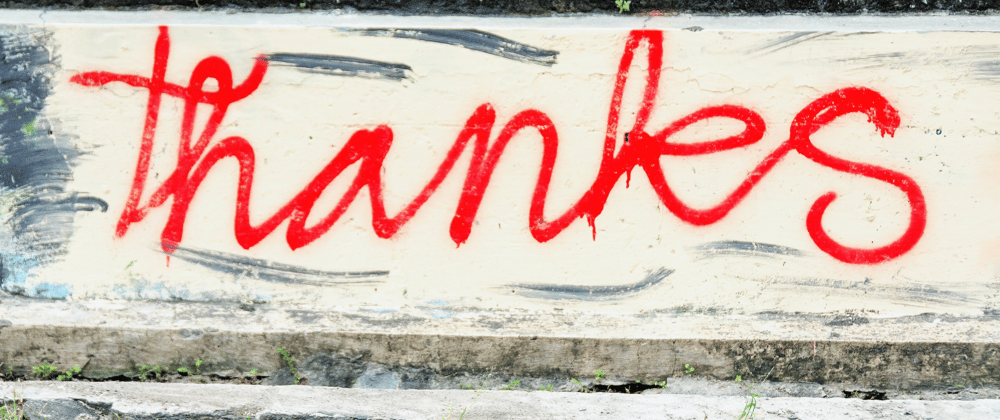Spanish translation by Ibidem: Por qué no soy “uno de los chicos”
"Hey, guys" is a phrase I often hear. It usually continues with words like "what do you think about this?" And if the context is within a mixed-gender group, I feel left out. I feel like they're talking to everyone else (or, at least, all who identify as a man) but me.
I know many native English speakers use the phrase as gender-neutral.
But it is not, and in this blog post, I will discuss the problems of using that expression. I will also address some other aspects of the "man-default." One of the things it means is, for example, that if we are talking about a developer, that developer is often referred to as "he" (so, "A developer found a bug. He started fixing it").
This is a very personal topic for me, as I've had to fight for my spot as a developer, and I'm still facing these assumptions that I'm less of a professional because of my gender. So if you don't recognize the problem, please just believe me and don't start mansplaining how, for example, "you guys" is a gender-neutral term, and I should just suck it up. Please just don't.
The Problem of Man-Default
When you refer to a hypothetical person whose gender is unknown, what is the pronoun you use? If the answer is "he," then congrats, you've found the man-default. It means that you default to man when talking about someone whose gender you don't know.
Man-default can also be found in expressions such as "manning the station," "man-hours," or "chairman." It is visible in other languages as well. For example, in Finnish, despite having only one personal pronoun for all genders, we have words such as "lakimies" (=lawyer, literal translation would be "law man"), "palomies" (fireman), or "miehittää" (same as in "manning the station").
Another example of man-default comes from sports. Often men's league is referred to as "the league," and then there is the women's league with the word "women" in it. For example, we have the NBA (National Basketball Association) and WNBA (Women's National Basketball Association). It displays men as default and women as "other," something that needs an explanation.
But you know, the language we use shapes the reality around us. If we always speak about men doing something and especially default to men when talking about fields where men are the majority, we maintain those structures and keep the image up.
Ok, this might sound a bit abstract, but let me try to explain it a bit further: If we always refer to software developers as "he," we (unconsciously) build an image where all software developers are men. It leads to situations where men are seen as better developers, because hey, of course. And then women are seen as less of professionals because they aren't men who are the default. And this is how unconscious bias, which leads to discrimination, builds.
It is also a topic that has become visible with translation algorithms. Nicolas Kayser-Bril wrote a piece for Algorithm Watch about how Google Translate systematically changes the gender for translations when the initial gender doesn't fit the stereotypes.
There was also an interesting Twitter-thread about Google Translate and pronouns during the International Women's Day in 2021:
These examples provide some fascinating insight into how language shapes reality. These translations are a direct consequence of the data used to train these algorithms. We, humans, are the same - if the data we get defaults always to, for example, men being the developers, we tend to believe that being a developer is meant only for men.
Guys is Not Gender Neutral
Back to the term "guys." Some argue that it is a gender-neutral term. Well, it is not. It originates from the word "guy," which is singular and means a man. Yes, I know, you might have learned it and been using it believing it is gender-neutral. That is ok - you didn't know. You are not a bad person. But could you please remember from now on that there are people who feel excluded when someone uses the word? Thank you!
Sara Bent from Hotjar writes about how they had a "Guys Jar"-challenge, a version of a swear jar. In their version, every time someone participating used the word 'guys' to refer to a group of mixed (or only-women) people, they had to pay.
I like how Sara puts the idea of using "guys" (from the blog post linked above):
Even though most people who use the term don't do so with the intent of it being sexist or exclusive of women, it can and often does cause women to feel left out of the conversation. Imagine you used 'gals' to refer to a room full of men and women—do you think the men would respond?
I've had and read many conversations with people (often with cis-men) about why they think "guys" is a gender-neutral term. One of the "best" arguments I've heard so far is that "we can't change the way soccer-moms in suburbs in the States use this term, so using it is ok for us as well." Well yeah, one thing is correct; we probably can't change that.
But you know, the conversation where they said this wasn't anywhere near those soccer moms - it was in Finland, in a professional context where English is the language used. And in a group where someone had just said they feel excluded when others use the word "guys" when referring to them. It was about the language used in the said setting. That felt... absurd.
Well, Why Don't I Just Speak Up?
I don't know about you, but when I'm in the minority, and I've seen that raising these issues sometimes gets even aggressive responses, it is hard to speak up.
Another thing that makes speaking up hard is that when I do, people usually assume I'm criticizing them, not their actions. These people tend to feel insulted, and you know how people are when they feel humiliated. The focus shifts to their feelings and me trying to tell them that no, I'm not assuming you're a terrible person. I'm only trying to bring to the attention things that you probably unconsciously are doing.
I've had good examples of when people have listened when I've brought this issue to attention. Still, more often, it ends up in an endless conversation about soccer moms and other non-relevant arguments. It gets tiring very soon.
And you know... It shouldn't be the responsibility of the minority to try to fix these issues alone. If it's something that has been brought up in a community before, the majority has the responsibility to act.
What Can I Use, Then?
So, you've decided to change your vocabulary. Thank you! I really appreciate that! You might be wondering what to use then. Here are some alternatives and considerations.
Alternatives for Guys
There are multiple alternatives you can use instead of "hey guys." Here are some examples with Kim Rees' tweet about some options:
Using They Instead of He (or She for That Matter)
When talking about a person whose gender you don't know - wheater a real person, or a hypothetical person (such as a hypothetical developer), default to "they"-pronoun.
It might feel a bit weird at first, but I promise you, you'll get used to it. I speak from experience :)
Being Aware of Man-Default
One more thing I want to point out is being aware of the man-default. Start paying attention to the words you use; do they keep up the picture of a man being the default? Yes, it's a challenging task to do because we use language unconsciously and automatically. But you can try anyway.
There are usually gender-neutral words to use instead of the ones defaulting to man. Here are some examples:
- Fireman -> Firefighter
- Chairman -> Chairperson
- Freshman -> First-year student
And so on. The internet is full of examples, so go and educate yourself!
Wrapping Up
So, TLDR; "Hey guys" is not a gender-neutral expression, and there are lots of people who feel excluded when someone uses it to refer to a group where they belong. I'm one of them.
There are better alternatives for the expression, and we should use them. Also, using "he" as a default pronoun is problematic, so let's use "they." And let's be aware of the fact that man is seen as a default in many places, so let's pay attention to the words we use.
You can find more examples of non-sexist language in Geek Feminism Wiki's guide on non-sexist language.
Cover photo by Etienne Girardet on Unsplash.







Latest comments (107)
As someone who grew up in California, "guys" has always been used as a way of referring to people, male or female. When singular, "guy" means a male.
It's fine to have a word that means male in the singular but that refers to any person in the plural.
This is such a silly thing to get offended over. I would say there are bigger problems in the world - but this isn't even a problem in the slightest.
This level of pedantry/oversensitivity and language policing is the real item of concern.
Part of me does wonder whether “guys” is in fact gendered.
Despite that, it’s pretty clear that this is the way tech language needs to move. If “guys” makes people feel left out, it’s time to move to more inclusive language, regardless.
When I taught secondary school, I used to tell a true story about the “best manager I ever knew”. I was very careful not to use gendered language when describing their skills and practices, until the very end, when you could hear a gasp when I did gender her. This was something like 30 years ago. We need to move a bit faster.
I disagree in part with your "Man-Default" language claim. "Man" can be a gender-neutral word, referring to any person. It was my understanding that the suffix "-man" in words like "fireman" or "policeman" comes from the same "-man" suffix in "human". The word "man" (I think) was originally a reference to our species' most useful and unique feature - hands (the word "mano" in Spanish is a good example of this showing up again). Even the word "guy" doesn't have it's origin in gendered language and was originally a reference to effigies of Guy Fawkes and could be used to reference any person.
Even if the dictionary definitions of these words today refer to only males, their colloquial use is undeniably gender-neutral, and I would argue that that is the more important fact.
I think you have some good sentiment, but I think your article title answers itself. You are not "one of the guys" because you yourself have stated that you are "... Not One of The Guys". I can only speak for myself here, but I think most "guys" would agree that you don't need to be male to be "one of the guys" and that the intent of that phrase is to refer to the larger group as a whole, regardless of gender. This isn't a matter of being exclusive language but rather a matter of self-exclusion due to a linguistic hang-up.
I hope this doesn't come across as confrontational, because I don't intend to be. It just appears to me as if this is a personal problem, and not something larger.
Thanks for the article, but i'm still going to use 'guys' for a group of people
For this article truly deserves a standing ovation for bring something so important to light. Complete, with a table. It's worth a Pulitzer prize for sure. For sure.
When one woman addresses others in a group of women, she might also just say "hey guys" instead of "hey gals".
Really appreciate you writing this, Eevis!
It sounds overwhelmingly to me that you're asking for people to be more empathetic and inclusive with their choice of language. That's definitely commendable!
I'm glad you got folks talking about this subject and applaud you for going there even when you know that "raising these issues sometimes gets even aggressive responses". I think that was a brave move. I also really respect you pointing out that there are lots of folks out there who feel excluded when the word "guys" is used to include women... you're absolutely right there are and it seems like a good idea to encourage others to be empathetic and inclusive when choosing which words they use — after all, there are some great alternative words, y'all! 🙂
Also, special thanks for sharing the Google Translate Twitter thread — this was such an awesome example of language bias at the intersection with tech!
Yep. Some people say that smoking causes cancer, but there are counterexamples where people who smoke do not get cancer, therefore smoking does not cause cancer. This is science.
/s
I haven't read all the comments, but in case it hasn't been mentioned, the "-man" in words like "fireman" doesn't come from "man as in male" but is more like something from "human". It's a quirk of English, but it doesn't have its roots in anything gender-y.
It's more like a hypercorrection to change "chairman" to "chairperson" when the "-man" is an unfortunate coincidence, and there's often already a serviceable word for the position ("chair", in this example).
I'm generally less enthusiastic about adding "person" to things because it sounds like you're trying to do something positive while swapping a suffix for a redundant word: everyone is a person. I wouldn't say I'm a "software person" when introducing myself (well, I might, but more like I'd say I'm a cat person, and that's getting off-topic). I'd say I was a software developer or coder or something. That's why "fire_fighter_" works so well, it describes the job better than the original (ask Ray Bradbury to elaborate) and is nice and inclusive.
You know exactly what I mean. You're just trying to favor a bigoted past. Harassing me doesn't help you.
Hear me out.
The sole existence of "man-only-by-default" words is a reminder of how things were and how they should not be. By making these words "gender neutral" instead of "man-only", we allow people to forget about gender of their interlocutors, effectively removing importance from the gender.
While picking up specific "inclusive" words forces people to keep the genders in mind all the time.
"This conversation is for men only", "woman should not do that" - are sexist.
As well as "use special greeting around me because I am a woman", "include more women in this conversation" and "this is not a place for a man" are also sexist.
The only way to fight sexism is to exclude gender out of equasion where it is not dictated by the actual physical differences. The rest only perpetuates the problem.
Your intentions do not matter when you're hurting people, period. You know this, because you're objecting to the pushback that you're getting, regardless of anybody else's intentions.
Saying "but maybe it's OK for people to claim that you don't belong" doesn't make you a hero; it makes you complicit.
Wow! Never really noticed that!
It's such a habit to say "Hey guys" in a team of both men and women
I could say "Hey, team" instead, that's a better option...
Some comments may only be visible to logged-in visitors. Sign in to view all comments.